TREATMENT FOR IRRITABLE BOWEL SYNDROME(IBS)
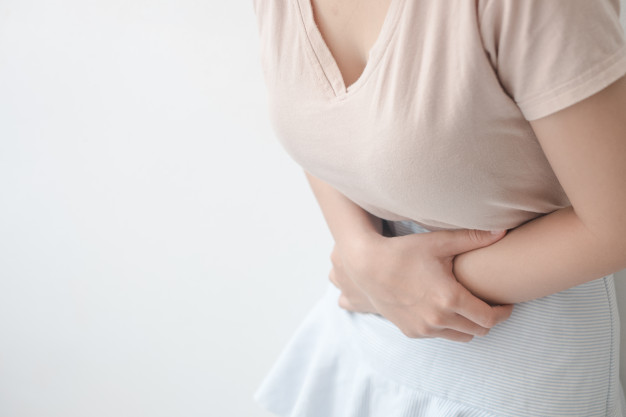
IRRITABLE BOWEL SYNDROME(IBS)
IBS is also known as spastic colon, irritable colon, mucous colitis, and spastic colitis. It is a separate condition from inflammatory bowel disease and isn’t related to other bowel conditions. IBS is a group of intestinal symptoms that typically occur together. The symptoms vary in severity and duration from person to person. However, they last at least three months for at least three days per month.
IBS can cause intestinal damage in some cases. However, that is not common.
IBS doesn’t increase your risk of gastrointestinal cancers, but it can still have a significant effect on your life.
SYMPTOMS of IBS
The symptoms of IBS typically include:
- cramping
- abdominal pain
- bloating and gas
- constipation
- diarrhea
It’s not uncommon for people with IBS to have episodes of both constipation and diarrhea. Symptoms such as bloating and gas typically go away after you have a bowel movement.
Symptoms of IBS aren’t always persistent. They can resolve, only to come back. However, some people do have continuous symptoms.
Symptoms of IBS in women
Women may tend to have symptoms around the time of menstruation, or they may have more symptoms during this time. Menopausal women have fewer symptoms than women who are still menstruating. Some women have also reported that certain symptoms increase during pregnancy.
Symptoms of IBS in men
Symptoms of IBS in men are the same as the symptoms in women. However, a lot fewer men report their symptoms and seek treatment.
CAUSES OF IBS
The precise cause of IBS isn't known. Factors that appear to play a role include:
- Muscle contractions in the intestine.The walls of the intestines are lined with layers of muscle that contract as they move food through your digestive tract. Contractions that are stronger and last longer than normal can cause gas, bloating and diarrhea. Weak intestinal contractions can slow food passage and lead to hard, dry stools.
- Nervous system. Abnormalities in the nerves in your digestive system may cause you to experience greater than normal discomfort when your abdomen stretches from gas or stool. Poorly coordinated signals between the brain and the intestines can cause your body to overreact to changes that normally occur in the digestive process, resulting in pain, diarrhea or constipation.
- Severe infection. IBS can develop after a severe bout of diarrhea (gastroenteritis) caused by bacteria or a virus. IBS might also be associated with a surplus of bacteria in the intestines (bacterial overgrowth).
- Early life stress.People exposed to stressful events, especially in childhood, tend to have more symptoms of IBS.
- Changes in gut microbes. Examples include changes in bacteria, fungi and viruses, which normally reside in the intestines and play a key role in health. Research indicates that the microbes in people with IBS might differ from those in healthy people.
RISK FACTORS
Many people have occasional signs and symptoms of IBS. But you're more likely to have the syndrome if you:
- Are young. IBS occurs more frequently in people under age 50.
- Are female. In the United States, IBS is more common among women. Estrogen therapy before or after menopause also is a risk factor for IBS.
- Have a family history of IBS. Genes may play a role, as may shared factors in a family's environment or a combination of genes and environment.
- Have anxiety, depression or other mental health issues. A history of sexual, physical or emotional abuse also might be a risk factor.
- Poor quality of life. Many people with moderate to severe IBS report poor quality of life. Research indicates that people with IBS miss three times as many days from work as do those without bowel symptoms.
- Mood disorders. Experiencing the signs and symptoms of IBS can lead to depression or anxiety. Depression and anxiety also can make IBS worse.
- Rome criteria. These criteria include abdominal pain and discomfort lasting on average at least one day a week in the last three months, associated with at least two of these factors: Pain and discomfort are related to defecation, the frequency of defecation is altered, or stool consistency is altered.
- Type of IBS. For the purpose of treatment, IBS can be divided into three types, based on your symptoms: constipation-predominant, diarrhea-predominant or mixed.
- Onset of signs and symptoms after age 50
- Weight loss
- Rectal bleeding
- Fever
- Nausea or recurrent vomiting
- Abdominal pain, especially if it's not related to a bowel movement, or occurs at night
- Diarrhea that is persistent or awakens you from sleep
- Anemia related to low iron
- Colonoscopy..Your doctor uses a small, flexible tube to examine the entire length of the colon.
- X-ray or CT scan. These tests produce images of your abdomen and pelvis that might allow your doctor to rule out other causes of your symptoms, especially if you have abdominal pain. Your doctor might fill your large intestine with a liquid (barium) to make any problems more visible on X-ray. This barium test is sometimes called a lower GI series.
- Upper endoscopy. A long, flexible tube is inserted down your throat and into the tube connecting your mouth and stomach (esophagus). A camera on the end of the tube allows the doctor to inspect your upper digestive tract and obtain a tissue sample (biopsy) from your small intestine and fluid to look for overgrowth of bacteria. Your doctor might recommend endoscopy if celiac disease is suspected.
- Lactose intolerance tests. Lactase is an enzyme you need to digest the sugar found in dairy products. If you don't produce lactose, you may have problems similar to those caused by IBS, including abdominal pain, gas and diarrhea. Your doctor may order a breath test or ask you to remove milk and milk products from your diet for several weeks.
- Breath test for bacterial overgrowth. A breath test also can determine if you have bacterial overgrowth in your small intestine. Bacterial overgrowth is more common among people who have had bowel surgery or who have diabetes or some other disease that slows down digestion.
- Stool tests. Your stool might be examined for bacteria or parasites, or a digestive liquid produced in your liver (bile acid), if you have chronic diarrhea.
- Avoid foods that trigger your symptoms
- Eat high-fiber foods
- Drink plenty of fluids
- Exercise regularly
- Get enough sleep
- High-gas foods.If you experience bloating or gas, you might avoid items such as carbonated and alcoholic beverages and certain foods that may lead to increased gas.
- Gluten. Research shows that some people with IBS report improvement in diarrhea symptoms if they stop eating gluten (wheat, barley and rye) even if they don't have celiac disease.
- FODMAPs. Some people are sensitive to certain carbohydrates such as fructose, fructans, lactose and others, known as FODMAPs — fermentable oligosaccharides, disaccharides, monosaccharides and polyols. FODMAPs are found in certain grains, vegetables, fruits and dairy products.
- Fiber supplements. Taking a supplement such as psyllium (Metamucil) with fluids may help control constipation.
- Laxatives. If fiber doesn't help constipation, your doctor may recommend over-the-counter laxatives, such as magnesium hydroxide oral (Phillips' Milk of Magnesia) or polyethylene glycol (Miralax).
- Anti-diarrheal medications. Over-the-counter medications, such as loperamide (Imodium A-D), can help control diarrhea. Your doctor might also prescribe a bile acid binder, such as cholestyramine (Prevalite), colestipol (Colestid) or colesevelam (Welchol). Bile acid binders can cause bloating.
- Anticholinergic medications. Medications such as dicyclomine (Bentyl) can help relieve painful bowel spasms. They are sometimes prescribed for people who have bouts of diarrhea. These medications are generally safe but can cause constipation, dry mouth and blurred vision.
- Tricyclic antidepressants. This type of medication can help relieve depression as well as inhibit the activity of neurons that control the intestines to help reduce pain. If you have diarrhea and abdominal pain without depression, your doctor may suggest a lower than normal dose of imipramine (Tofranil), desipramine (Norpramin) or nortriptyline (Pamelor). Side effects — which might be reduced if you take the medication at bedtime — can include drowsiness, blurred vision, dizziness and dry mouth.
- SSRI antidepressants. Selective serotonin reuptake inhibitor (SSRI) antidepressants, such as fluoxetine (Prozac, Sarafem) or paroxetine (Paxil), may help if you are depressed and have pain and constipation.
- Pain medications. Pregabalin (Lyrica) or gabapentin (Neurontin) might ease severe pain or bloating.
- Alosetron (Lotronex).
- Eluxadoline (Viberzi).
- Rifaximin (Xifaxan).
- Lubiprostone (Amitiza).
- Linaclotide (Linzess).
- Ouyang H, Chen J D. Review article: therapeutic roles of acupuncture in functional gastrointestinal disorders. Aliment Pharmacol Ther 200420831–841.
- Drossman D A, Whitehead W E, Camilleri M. Irritable bowel syndrome: a technical review for practice guideline development. Gastroenterology 19971122120–2137.
- Quartero A O, Meineche‐Schmidt V, Muris J.et al Bulking agents, antispasmodic and antidepressant medication for the treatment of irritable bowel syndrome. Cochrane Database Syst Rev 2005(2)CD003460.
Our Branches
Valasaravakkam
Kotturpuram
COMPLICATIONS
Chronic constipation or diarrhea can cause hemorrhoids.
In addition, IBS is associated with:
DIAGNOSIS
There's no test to definitively diagnose IBS. Your doctor is likely to start with a complete medical history, physical exam and tests to rule out other conditions, such as celiac disease.
After other conditions have been ruled out, your doctor is likely to use one of these sets of diagnostic criteria for IBS:
Your doctor will also likely assess whether you have other signs or symptoms that might suggest another, more serious, condition. These signs and symptoms include:
If you have these signs or symptoms, or if an initial treatment for IBS doesn't work, you'll likely need additional tests.
Additional tests
Your doctor may recommend several tests, including stool studies to check for infection or problems with your intestine's ability to take in the nutrients from food (malabsorption). You may also have a number of other tests to rule out other causes for your symptoms.
Diagnostic procedures can include:
Laboratory tests can include:
TREATMENT
Treatment of IBS focuses on relieving symptoms so that you can live as normally as possible.
Mild signs and symptoms can often be controlled by managing stress and by making changes in your diet and lifestyle. Try to:
Your doctor might suggest that you eliminate from your diet:
In addition, based on your symptoms your doctor might suggest medications such as:
Medications specifically for IBS
Medications approved for certain people with IBS include:
EFFECTIVENESS OF ACUPUNCTURE
Acupunctureworks on this type of irritable bowel syndrome by manipulating the flow of energy through the digestive system.A pin, rather than a pill, could help those living with the most common form of recurring indigestion.Researchers say a 4-week course of acupuncture appears to relieve symptoms of postprandial distress syndrome (PDS), a form of irritable bowel syndrome characterized by early fullness after eating and upper abdominal bloating.Researchers say acupuncture could be a safe and effective alternative.
The study found that patients who received acupuncture were significantly more likely to report “improvement” or “extreme improvement” and complete resolution in their symptoms.The effects of acupuncture on the irritable bowel syndrome is unbelievable.
MECHANISM OF ACUPUNCTURE
Acupuncture manipulates the flow of energy along the meridians of the body and gets it moving in the direction it is supposed to be going.
Just as irritable bowel syndrome may be seen as problems with the movement of food through the stomach and intestines, acupuncture seeks to address the “counterflow” of energy through the body.In Chinese medicine, stomach energy needs to move downward through the digestive tract.If there is something moving upward, then the qi (life energy) is rebelling. It needs to be balanced.
There is evidence that acupuncture acts on the autonomic nervous system (in this case the vagus nerve) and this may alter stomach motility and relaxation. Acupuncture also likely has effects on pain processing at both central and peripheral levels. Finally, there is a high placebo response to acupuncture, and the subtle differences in how the needles were placed and manipulated could have biased the response somewhat.
Acupuncturists may treat conditions like irritable bowel syndrome by inserting needles far from the source of the problem.There are a couple of acupuncture points on the outer calf below the knee that are really great for digestive issues, and on the inner wrist for abdominal fullness.There is a promising results using acupuncture to treat irritable bowel syndrome.Acupuncture target the autonomic nervous system and pain processing in the brain for irritable bowel syndrome.
BEST CURE FOR IRRITABLE BOWEL SYNDROME
Looking for the best relief for irritable bowel syndrome in Chennai, here’s why you should reach out to the expert Acupuncturist. A. Shaji Bharath from the best rated clinic Dr.Bharath’s Acu Heal. He is currently treating patients for a wide range of conditions. As a best acupuncture practitioner with 15 years of experience, and having worked with several urologists, Acupuncturist. A. Shaji Bharath can create the treatment plan for the best cure for irritable bowel syndrome to manage the condition that's tailored to your needs. As the top acupuncture doctor in Chennai he has witnessed acupuncture doing wonders for people suffering from irritable bowel syndrome . The effectiveness rate increases several times just with one course of Acupuncture. So, take some time to find the right pain management and best remedy for acupuncture approach that suits you. Most of the people swear by acupuncture, citing it as a best cure and a ‘miracle’ to improving their quality of life. To contact the top acupuncture doctor in Chennai, Dial: +91 9884746916 or Visit: drbharathsacuheal.com for more details.
BEST ACUPUNCTURE DOCTOR NEAR ME
To choose the Best doctor for Acupuncture, it's important that the Acupuncturist should have a decade of experience and treated at least 1000 to 2000 patients.
You can also search for the Best Acupuncture Doctor near me or ask your primary care physician to refer an experienced Acupuncturist nearby. Once you find the Best Acupuncture Doctor in Chennai, you may go through their google reviews first and then fix an appointment with the doctor only when you are satisfied with the reviews.
The Best Acupuncture Doctor should address your concerns and help you feel more comfortable before your first session. Acupuncture usually takes numerous sessions or several weeks to get a complete cure in any ailment but within 3 or 4 sessions the patients will experience positive differences.
BEST ACUPUNCTURE CLINIC NEAR ME
There are numerous clinics popping up and it is sometimes skeptical to choose the best or even the safe one. To address such concerns, you can look into the following points to choose the best acupuncture clinic for treating irritable bowel syndrome. Acupuncture is also offered in hospital pain clinics and by healthcare organizations but it is ideal to visit the best Acupuncture Clinic. If you are not sure, it would be a good idea to contact your local doctor to see if they would be prepared to refer to the best rated acupuncture clinics.Acupuncture is offered in top rated acupuncture clinics near me because conventional treatment has failed or produces unacceptable side effects. Most of the best acupuncture clinics will spell out very clearly what type of acupuncture they practice and how professional they are - at present anyone can set themselves up as an acupuncturist but reputable practitioners will belong to an organization. So while you are filtering the best clinics for acupuncture that treats irritable bowel syndrome, you can look out for these factors.Treatment without drug for irritable bowel syndrome is possible through acupuncture and it gives the best result.
THE BOTTOM LINE
There is a cure for IBS in acupuncture. However, if a person with IBS avoids triggers, makes dietary adjustments, and follows their doctor’s advice, they can significantly reduce the risk of flares and discomfort.
Treatment options for IBS aim to relieve symptoms and improve quality of life.
Dial +91 9884746916 or Visit: drbharathsacuheal.com to get the best remedy. Remember, you don’t have to put up with constant irritable bowel syndrome.
SCIENTIFIC REFERENCES
For further clarifications or
to fix an Appointment
Thank you for choosing us
Our experts will get back to you at the earliest
or
FAQ:
What are the services provided for irritable bowel syndrome by Dr. Bharath’s Acu Heal?
Irritable bowel syndrome (IBS) is a group of intestinal symptoms that typically occurs together. The symptoms may include cramping, pain in the abdomen, bloating & gas, constipation, diarrhea, etc. The Acupuncturist will understand the condition of the disease only after a thorough investigation by pulse and tongue diagnosis. Acupuncture treatment will be given based on the disease’s chronicity and acuteness. In the first few sessions, there will be a positive change in the symptoms and after several sessions, there will be a 90% to 100% chance that the patient will get cured of irritable bowel syndrome. Simultaneously the patient will be advised on a diet with food restrictions and exercise regime which includes an induced sound sleep that plays a vital role in reversing the disease.
What are the benefits of acupuncture for irritable bowel syndrome?
This is a drugless therapy and there are no side effects. During the treatment, any form of previous medications can be stopped.
How many sessions do you need for irritable bowel syndrome?
It takes around 30 to 40 sessions in a period of 4 to 5 months.



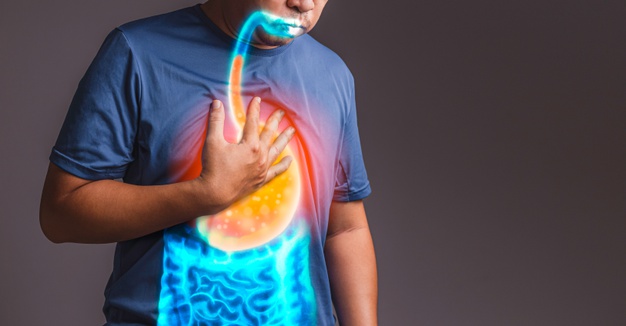 TREATMENT FOR GERD
TREATMENT FOR GERD
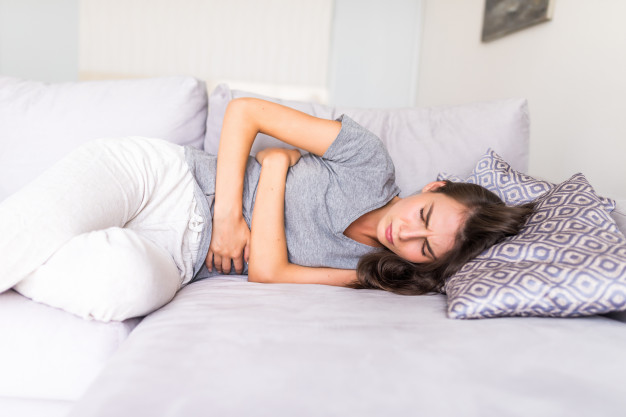 TREATMENT FOR STOMACH PROBLEMS
TREATMENT FOR STOMACH PROBLEMS
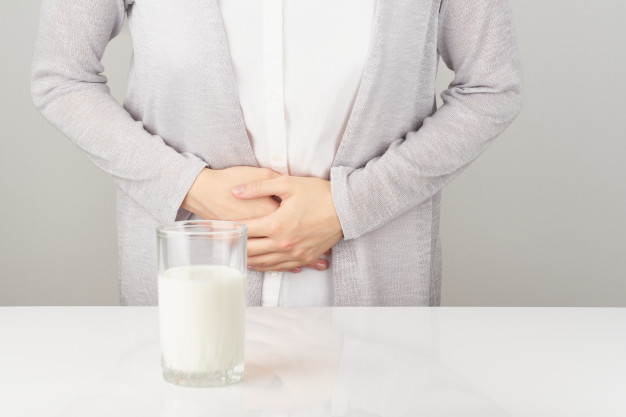 TREATMENT FOR BLOATING
TREATMENT FOR BLOATING
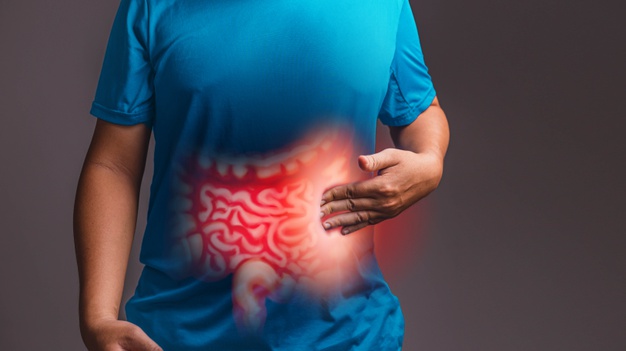 TREATMENT FOR CONSTIPATION
TREATMENT FOR CONSTIPATION
